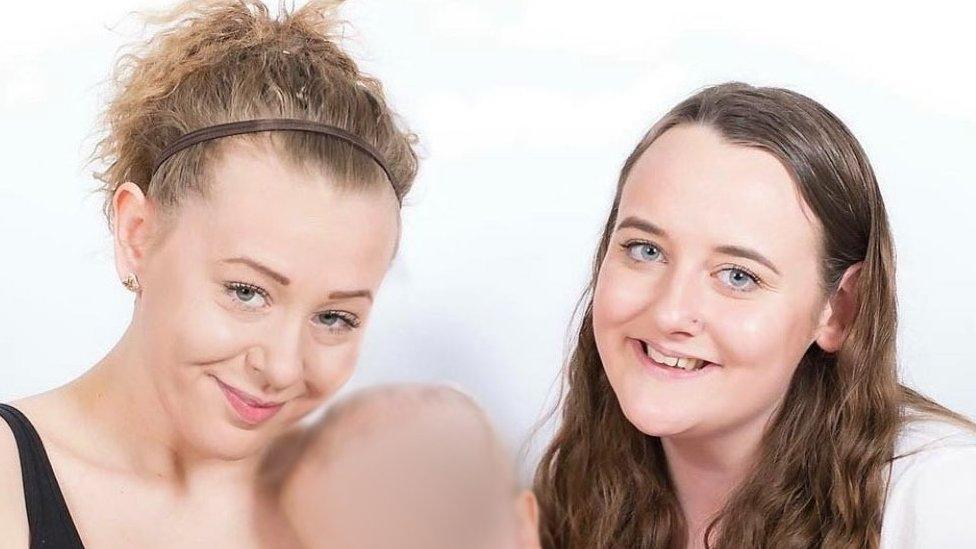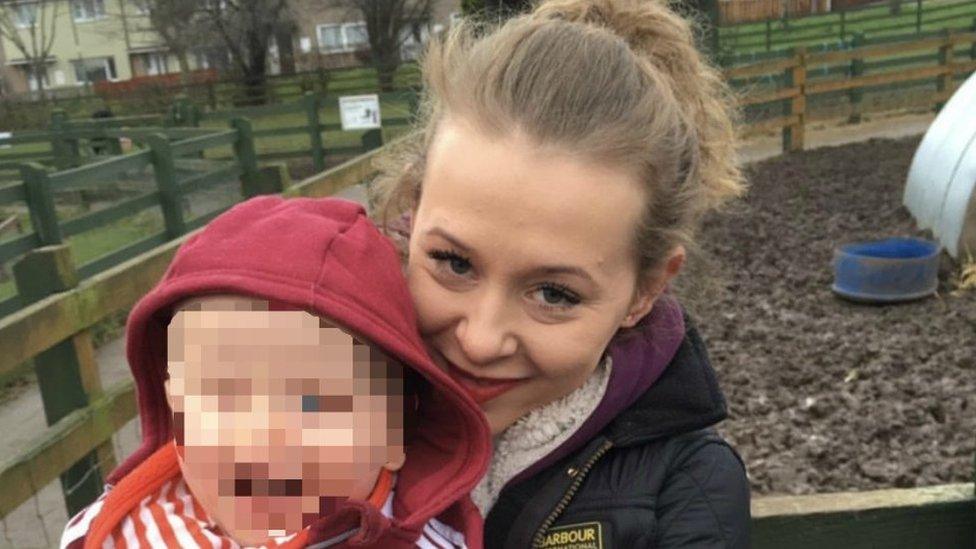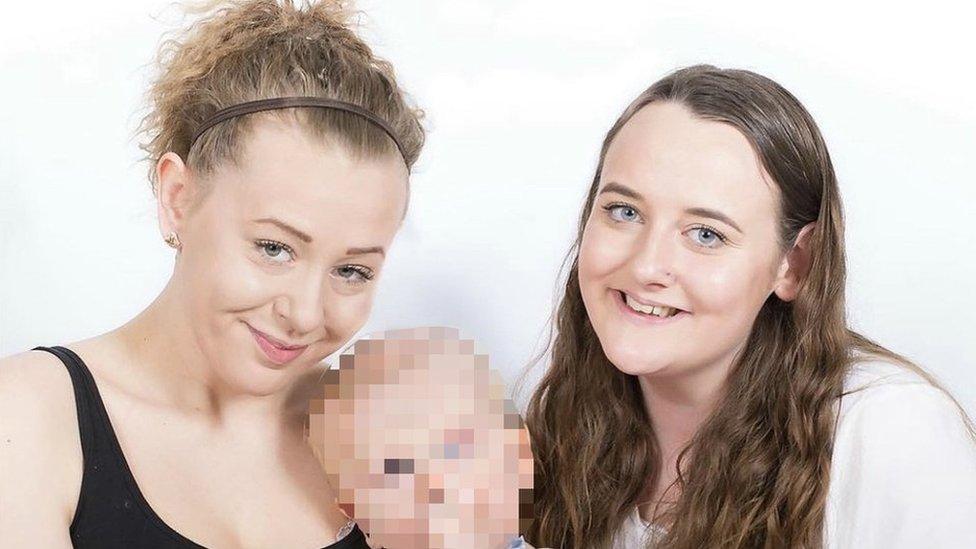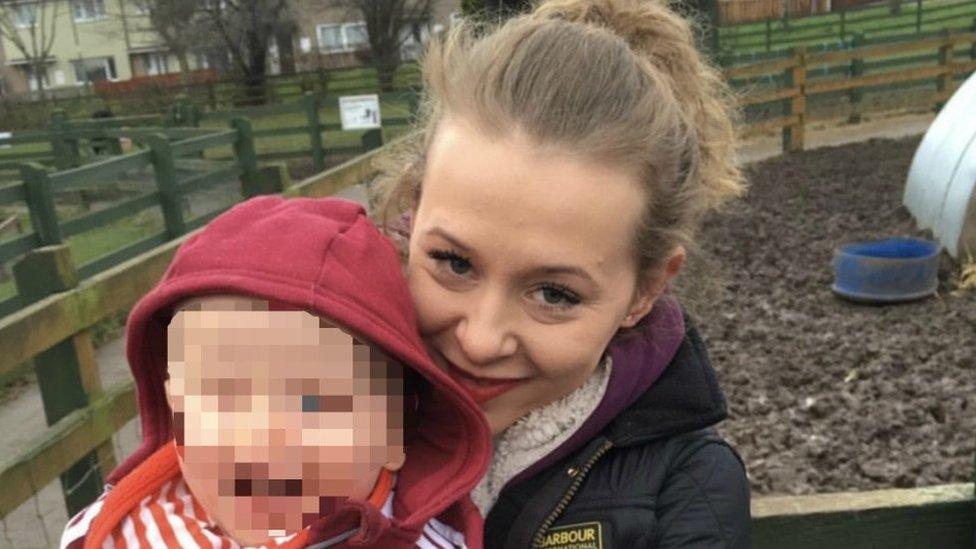Nottingham: Woman calls for benefits reform after sister's death
- Published

Imogen Day (right) said the benefits system needed to be rebuilt following the death of Philippa (left)
The sister of a mother who took her own life fears "more tragedies will occur" unless the benefits system is reformed.
Philippa Day, from Mapperley in Nottingham, was 27 years old when she died in 2019.
A review into her death concluded she was let down by agencies who should have looked after her and the benefits system had caused her distress.
Her sister Imogen Day said the system should be "rebuilt using co-production methods".
Philippa had a diagnosis of emotionally unstable personality disorder as well as physical health needs due to her type 1 diabetes.
She was also agoraphobic and felt she could not leave the house for an in-person assessment.

Philippa's family say her mental health deteriorated after she was left living on £60 a week
Her £228 weekly payment was reduced to £60 after she applied for personal independence payments (PIP), said the Local Democracy Reporting Service, external.
She was found dead with a letter beside her from Capita, contracted by the Department for Work and Pensions (DWP), refusing her a home assessment visit over her benefits.
A safeguarding review by the Nottingham City Safeguarding Adults Board (NCSAB) found that problems with the benefits process "caused [Philippa] extreme anxiety and distress".
The report said: "This additional stress significantly increased her risk of self-harm and suicide."
Imogen Day said: "I think the report was very thorough.
"I believe that the DWP should be rebuilt using co-production methods with claimants, disability organisations and those that have been let down by the system.
"In an ideal world, I would like for disability benefits to be designed by the people that access them, services that support them and the DWP in partnership with each other."
Philippa Day: Benefits problems 'destroyed Nottingham mum'
A DWP spokesperson said their condolences remained with the family and Capita said it had "strengthened processes" since Philippa's death.
It comes after a coroner said in 2021 that 28 errors were made in managing her benefits case by the DWP and contractors Capita.
The family agreed a "substantial settlement" in 2021.
The review was discussed at a Nottingham City Council health and wellbeing board meeting on 29 November.
The safeguarding board believed there were lessons to be learned about how agencies had worked together in relation to supporting Philippa.
The report stated: "Two weeks [after she died], Capita determined they could decide [on the] claim on the information available without further assessment and PIP was awarded.
"Sadly, this was too late."
The review also found that the DWP and Capita had made improvements since Ms Day's death.
A Capita spokesperson said: "We are very sorry for the mistakes we made in processing Philippa's Personal Independence Payment claim and the additional stress this caused her; and have conveyed our apologies and condolences to her family.
"We have strengthened our processes and are continuously working to improve and deliver a professional, efficient and kind service for every PIP applicant we assess."
A statement from the DWP added: "This was a tragic and complex case and our condolences remain with this family."
If you are affected by the issues mentioned here, you can find support from the BBC Action Line.

Follow BBC East Midlands on Facebook, external, on X, external, or on Instagram, external. Send your story ideas to eastmidsnews@bbc.co.uk, external.
Related topics
- Published3 November 2021

- Published27 January 2021

- Published6 November 2020
